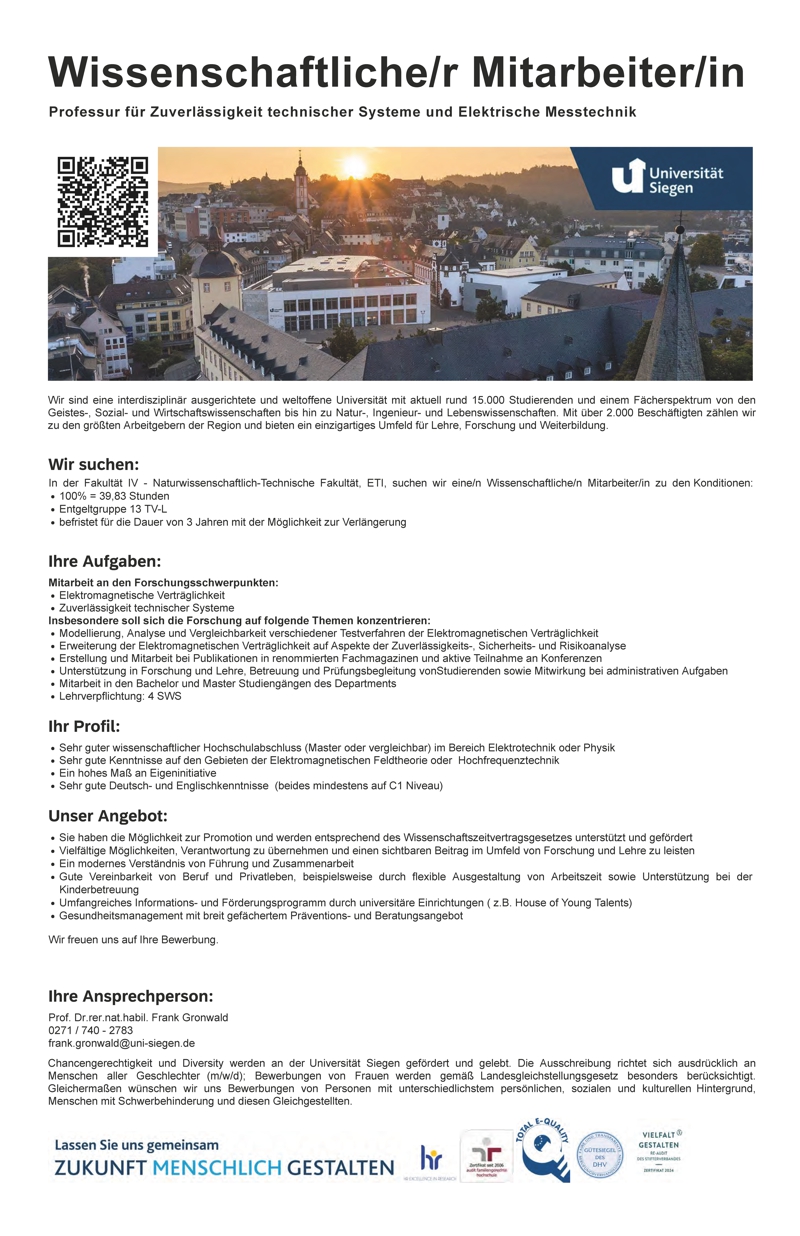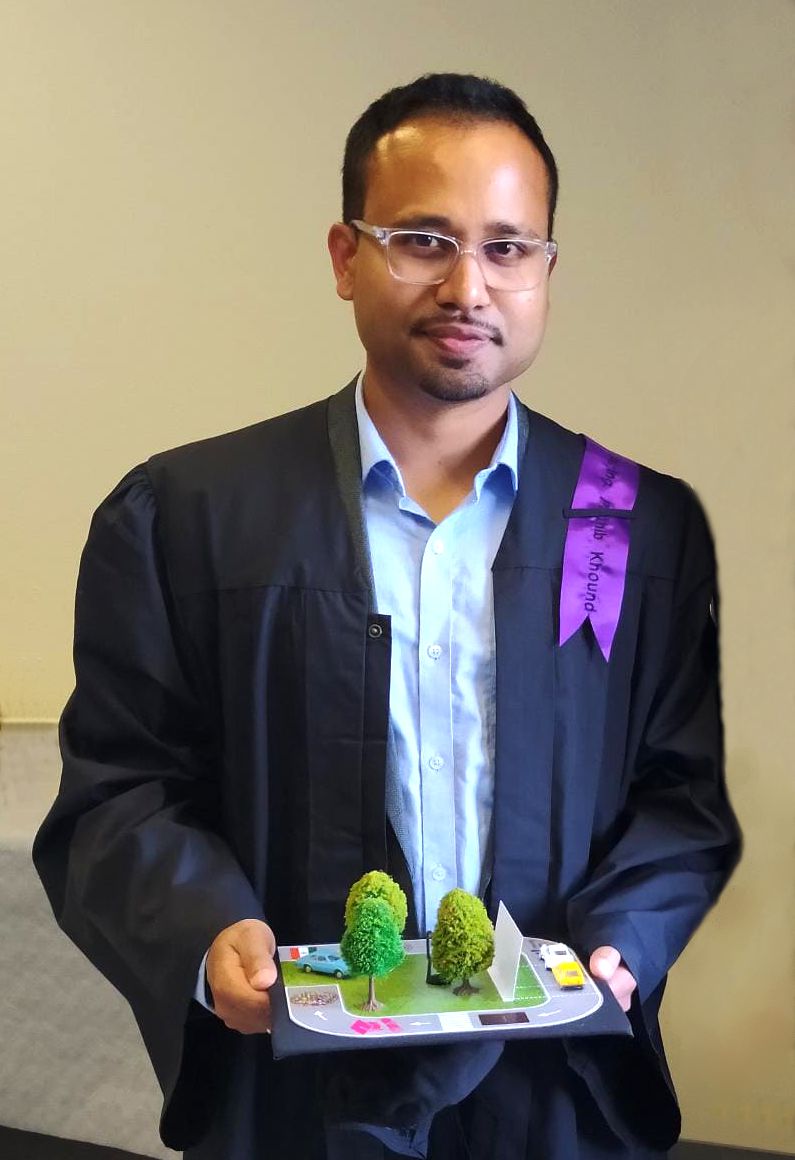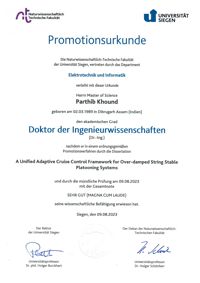IEEE publication at the Chair of
Reliability of Technical Systems and Electrical Measurement Technology
In March of this year it was published in the journal
IEEE Transactions on Intelligent Vehicles
Print ISSN: 2379-8858
Online ISSN: 2379-8904
Digital Object Identifier: 10.1109/TIV.2021.3066056In March of this year it was published in the journal
a post entitled
Design Methodology to Derive Over-damped String Stable Adaptive Cruise Control Systems
released.
Authors
Parthib Khound • Dr. Peter Will • Prof. Dr. rer. nat. Frank Gronwald
(University of Siegen, Fakt. IV, Dept. Electrical Engineering and Computer Science)
Abstract
In this paper, we formulate a common design methodology to derive an adaptive cruise control algorithm in order to compensate the effect of the lower level time-lag on the stability. Here the dynamics of the vehicle is approximated by a first order system. The lower level time-lag is referred to the lag associated with the vehicle dynamics to attain the desired condition computed by the adaptive cruise controller. Inclusion of such dynamics reduces the performance of an adaptive cruise control system, both locally and collectively. The solutions presented here can be applied to design a new adaptive cruise control model or to extend any model with velocity dependent spacing function. The derived design method fulfills the over-damped string stability condition in presence of a time-lag in the plant, irrespective of the choice of the equilibrium operating point of linearization. The over-damped characteristic improves both safety and performance. To demonstrate the application of the presented method, two existing models are extended using the derived strategy, viz. the variable time gap and the quadratic range policy. Later the extended models are simulated with rigorous driving conditions, in order to illustrate the improvements in comparison with the respective original models as well as with the extended models using an existing compensation strategy.
|




